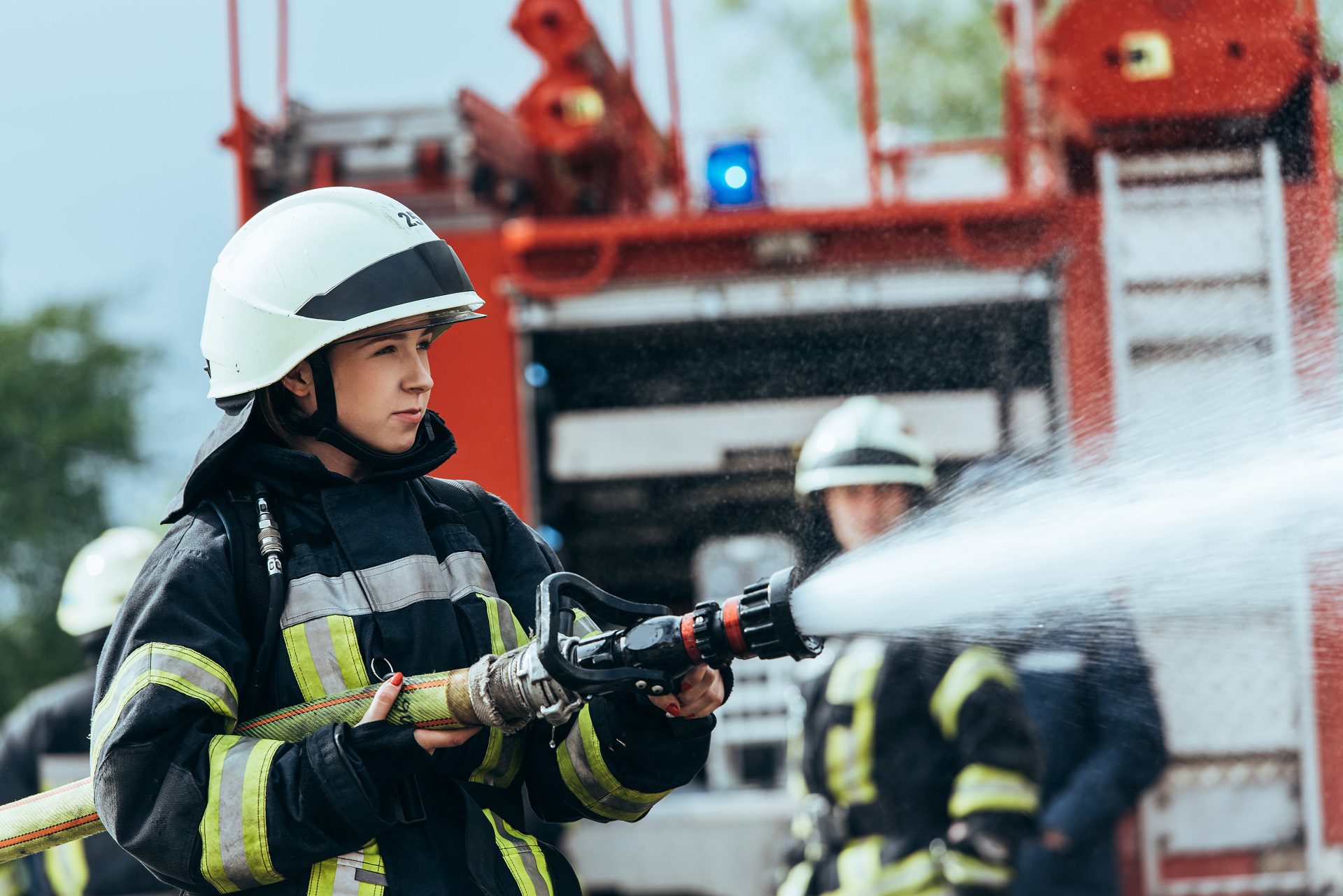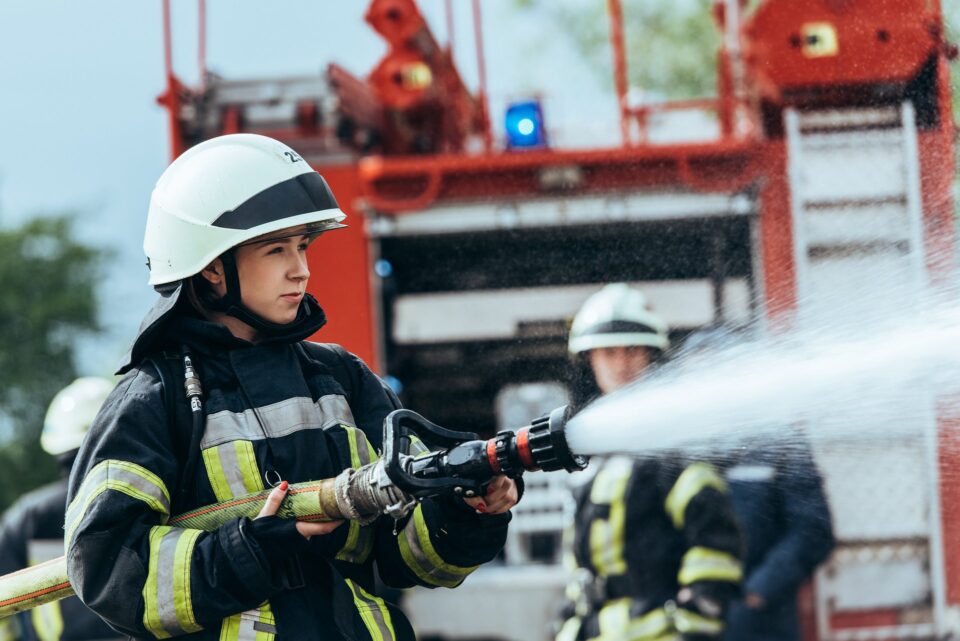Firefighters
At a glance
- Median Salary$55,289
- Local Jobs719

Occupation Profile
By the Numbers
Median annual earnings$55,289
Median Annual Earnings are the midpoint earned by 50 percent of workers who are the lowest paid and 50 percent of workers who are the highest paid in a particular occupationLocal Jobs719
Median Annual Earnings are the midpoint earned by 50 percent of workers who are the lowest paid and 50 percent of workers who are the highest paid in a particular occupationEntry-level educationHigh School
Median Annual Earnings are the midpoint earned by 50 percent of workers who are the lowest paid and 50 percent of workers who are the highest paid in a particular occupation
Daily Tasks
- Rescue victims from burning buildings, accident sites, and water hazards.
- Dress with equipment such as fire-resistant clothing and breathing apparatus.
- Assess fires and situations and report conditions to superiors to receive instructions, using two-way radios.
- Move toward the source of a fire, using knowledge of types of fires, construction design, building materials, and physical layout of properties.
- Respond to fire alarms and other calls for assistance, such as automobile and industrial accidents.
- Create openings in buildings for ventilation or entrance, using axes, chisels, crowbars, electric saws, or core cutters.
- Drive and operate fire fighting vehicles and equipment.
- Inspect fire sites after flames have been extinguished to ensure that there is no further danger.
- Position and climb ladders to gain access to upper levels of buildings, or to rescue individuals from burning structures.
- Select and attach hose nozzles, depending on fire type, and direct streams of water or chemicals onto fires.
- Operate pumps connected to high-pressure hoses.
- Maintain contact with fire dispatchers at all times to notify them of the need for additional firefighters and supplies, or to detail any difficulties encountered.
- Collaborate with other firefighters as a member of a firefighting crew.
- Patrol burned areas after fires to locate and eliminate hot spots that may restart fires.
- Collaborate with police to respond to accidents, disasters, and arson investigation calls.
- Participate in fire drills and demonstrations of fire fighting techniques.
- Maintain knowledge of current firefighting practices by participating in drills and by attending seminars, conventions, and conferences.
- Prepare written reports that detail specifics of fire incidents.
- Participate in physical training activities to maintain a high level of physical fitness.
- Protect property from water and smoke, using waterproof salvage covers, smoke ejectors, and deodorants.
- Inform and educate the public on fire prevention.
- Salvage property by removing broken glass, pumping out water, and ventilating buildings to remove smoke.
- Orient self in relation to fire, using compass and map, and collect supplies and equipment dropped by parachute.
- Clean and maintain fire stations and fire fighting equipment and apparatus.
- Inspect buildings for fire hazards and compliance with fire prevention ordinances, testing and checking smoke alarms and fire suppression equipment as necessary.
- Take action to contain any hazardous chemicals that could catch fire, leak, or spill.
- Extinguish flames and embers to suppress fires, using shovels or engine- or hand-driven water or chemical pumps.
Occupational Skills
Hard Skills
- Alarm Devices
- Communications Systems
- Emergency Medical Services
- Field Inspection
- Fire Alarm Systems
- Fire Prevention
- Fire Protection
- Fire Suppression Systems
- Firefighting
- Forklift Truck
Soft Skills
- Arithmetic
- Coaching
- Communications
- Good Driving Record
- Influencing Skills
- Interpersonal Communications
- Management
- Operations
- Troubleshooting (Problem Solving)
- Valid Driver's License
Hard skills are specific, learnable, measurable, often industry- or occupation-specific abilities related to a position.
Soft skills can be self-taught and usually do not necessitate a certain completed level of education. They are essential in many industries and occupations.
Educational Programs
Firefighters
| Type | Credential | Hrs | Online | Financial Aid |
| Credit | AAS Degree/L2 | 60 | No | Yes |
Learn more aboutFirefighters
Visit Career Coach for additional in-depth information and available training programs for this job.













